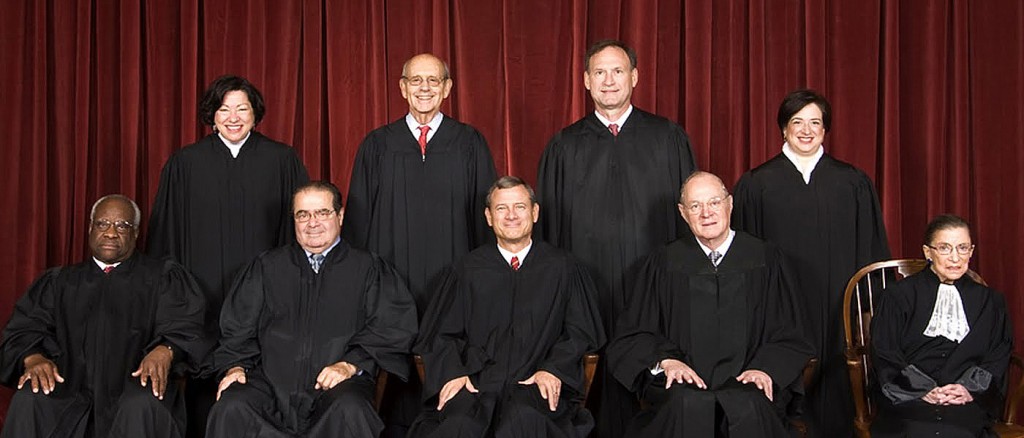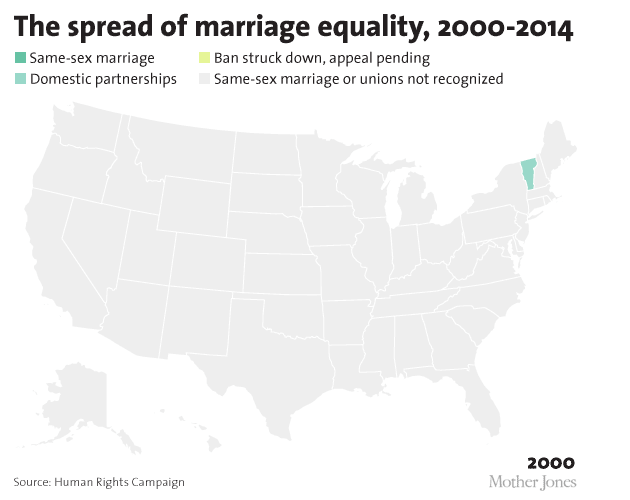The 14th Amendment of the Constitution focuses on citizenship and citizens rights in the U.S. It forbids states from denying any person “life, liberty, or property, without due process of law” or to “deny to any person within its jurisdiction the equal protection of the laws.”
On Friday, Jan. 16, the Supreme Court agreed to hear cases that challenge same-sex marriage bans in four states in what will inevitably become a historic ruling on marriage equality.
Thirty-six states have laws allowing same-sex marriage, including New York.
The judges will ask two core questions:
- Does the 14th Amendment require a state to license a marriage to two people of the same sex?
- Does the 14th Amendment require a state to recognize a marriage between two people of the same sex when their marriage was lawfully licensed and performed out of state?
The court has allowed for three and a half hours of arguments in April, and has consolidated the petitions that include 15 same sex couples that have brought four cases citing a fundamental right to marry and recognition of out of state marriages. Each of the cases ask the Supreme Court to overturn marriage bans and declare that people can marry the partner of their choice.
A decision is expected by June (notably, LGBT Pride Month).
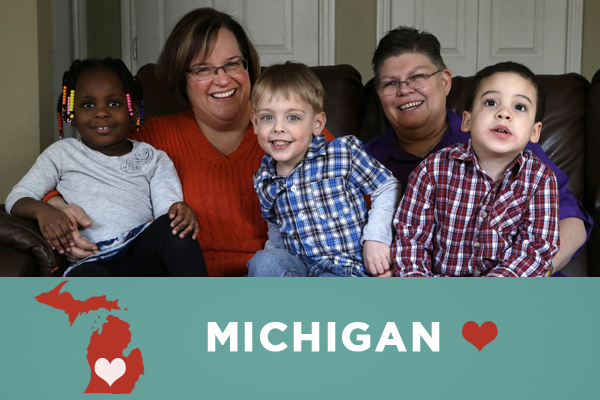
Photo: freedomtomarry.org
DeBoer v. Snyder, a lawsuit filed by Jayne Rowse and April DeBoer on Jan. 23, 2012, challenged Michigan’s ban on adoption by same-sex couples. The couple is raising three adopted children with special needs. Judge Bernard Friedman asked the couple to challenge the state’s ban on same-sex marriage, instead, which he viewed as “the underlying issue.” Under Friedman’s theory, if the ban is overturned, laws such as Michigan’s adoption restriction would likely fall, as well.
Bruce Carter — an associate professor of psychology and child and family studies at Syracuse University, a developmental psychologist who specializes in childhood development, with a focus on issues of gender and sexuality — joins with Supreme Court Justice Anthony Kennedy in asserting that “standing for marriage equality is likely to benefit children and adolescents in families headed by GLBT parents,” Carter responded in an email.
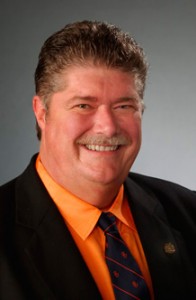
Photo: falk.syr.edu
“Speaking as a psychologist, there is no evidence indicating that children raised by LGBT parents are disadvantaged by their parents, although they may suffer as a result of the prejudices of those outside their families, including local, state and federal governments, that legally discriminate against them,” he wrote.
Carter is also the president of CNY Pride, a non-profit, volunteer organization founded in 1971 to “encourage, empower and celebrate the lesbian, gay, bisexual and transgender community and their friends, families and supporters.”
Depending on one’s political or religious affiliations, there will be plenty of room for water-cooler debate as the justices prepare to hear arguments in April, but the focus will remain on the 14th Amendment, and hope remains in the hearts and minds of LGBT couples, families and allies.
“Justifying such discrimination on the basis of Biblical or other religious traditions seeks to impose a specific theocratic concept of law, which is expressly forbidden by the First Amendment of the Constitution,” Carter wrote. “I believe that an affirmative ruling will effectively end the idea that the tyranny of the majority (more appropriately, “mob rule”) should allow legislators or voters to pass laws that discriminate against minorities in the population.”
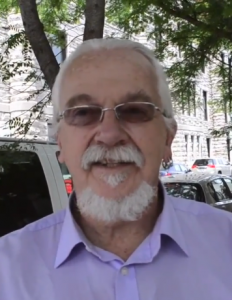
Syracuse-based artist and activist Harry Freeman-Jones married his partner, Bob Jones, in 1973 at the Old West Church, in Boston. It was one of the first same-sex marriages in the country. Despite major media coverage, not one protest occurred.
Asked about the recent news, Freeman-Jones responded: “From my perspective, our community is offering the Supreme Court the opportunity to affirm that same sex marriages and families exist and deserve equal respect and constitutional protections extended to heterosexuals.”
“If they do the wrong thing, then they will be enshrining bigotry, discrimination and malice in our country’s judicial policies. It is my hope that they will affirm our national sense of fairness, justice, and reconciliation among the members of our national family.”
Bringing Forth the Cases
- No. 14-556: Obergefell v. Hodges, from Ohio and No. 14-562: Tanco v. Haslam, from Tennessee.
These cases challenged state laws that have ruled against the recognition of same-sex marriages performed in other states.
- No. 14-571: DeBoer v. Snyder, from Michigan.
This case challenged the state’s ban on same-sex marriage.
- No. 14-574: Bourke v. Beshear, from Kentucky (brought by two sets of plaintiffs)
This case challenged both state laws that have ruled against the recognition of same-sex marriages performed in other states and the state’s ban on same-sex marriage.
For a Short History of the Rainbow Flag – CLICK HERE
Ty Marshal is the Manager of Digital Media at the Syracuse New Times.
Find him on twitter @TyMarshal. Email him at [email protected]


